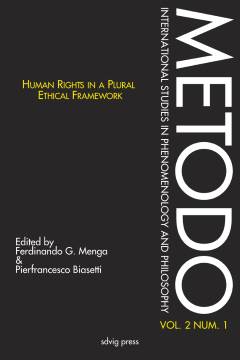Repository | Journal | Volume | Articles

(2014) Metodo 2 (1).
Some legal rights are paired to moral rights (but most legal rights do not institutionalize moral rights). Dual-status rights reflect the value of individual autonomy in the Kantian tradition. In the nineteenth century the Will Theory sought to analyze these rights by relating them to the autonomy of the will. Today dual-status rights are analyzed as deontic constraints in Anglo-American moral philosophy. In this paper I try to provide an anatomy of deontic constraints. I explain how deontic constraints are linked to two different forms of personal separateness: agent separateness and patient separateness. I also offer an expressive theory of deontic constraints. This theory appeals to a second-tier deontic distinction: the distinction between a moral system positively permitting the violation of rights and a moral system merely allowing it. An expressive deontic moral theory should combine rights against others and duties to oneself in order to express both facets of personal separateness. In general terms, the Kantian theory of moral duties got it right.
Publication details
Full citation:
Spector, H. (2014). The reflective nature of moral rights. Metodo 2 (1), pp. 35-47.
This text is available for download in the following format(s)
This document is available at an external location. Please follow the link below. Hold the CTRL button to open the link in a new window.



